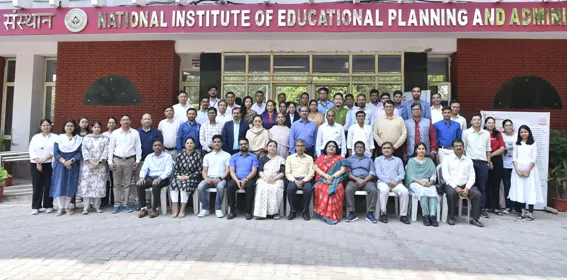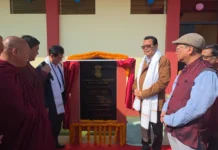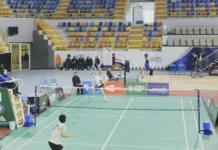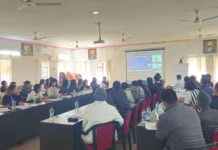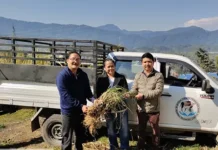NEW DELHI/RONO HILLS, 17 May: A five-member delegation from Rajiv Gandhi University(RGU), comprising Joint Registrar Dr David Pertin, Assistant Registrar Gomar Basar, and faculty members Prof Boa Reena Tok, Prof C Siva Sankar and Dr Varsha Patnaik attended the ‘In-person zone-wise capacity building programme for inclusion of specific learning disabilities (SLD) in higher education institutes (HEI), organised in New Delhi by the education ministry’s higher education departmentfrom 16 to 17 May.
The programme, organised in collaboration with ChangeInkk Foundation, and anchored by National Institute of Educational Planning & Administration(NIEPA), was held with a view to prepare standard operating procedures (SOP) for streamlining processes, access to resources, and on-campus support and coordination.
The programme provided insights on conceptual ideology, identification process of learners with SLDs,
causes, screening process, assessment, intervention strategies for learners with SLD involving dyslexia, dysgraphia, dyscalculia, auditory processing disorder, language processing disorder, non-verbal processes, and perceptual disabilities at higher level, the university informed in a release.
Expressing happiness over the shortlisting of RGU and its delegation as one of the nine central universities and institutes of the country, such as RGU, CU Odisha, CUSB, IIT-Kanpur, Bhubhaneshwar, Gandhinagar, NIT Nagaland, Goa and IIIT Delhi, RGU Vice-Chancellor Prof Saket Kushwaha said that “the panel of faculty members and academic administrators will device workable policies and SOPs for implementing inclusive learning environments for the students with specific learning disabilities in higher education institutions very soon through the ministry of education.”
He further said that, “as a prequel to this capacity-building programme, RGU’s education department had organised a two-day workshop on mental health & wellbeing from 2 to 3 May.”
On the sidelines of the programme, Dr Pertin said that “the programme provided valid observations on securing admission, the mentor-mentee system, inclusive outreach elements, capacity building, schemes and scholarships for students with SLDs,along with 21 disabilities under the PwD Act-2016.”
Prof Tok informed that “apart from other relevant matters, conducting orientation programmes for learners with SLDs after getting admission, getting unique disability ID for education before admission and employment, need-based analysis, accessible curriculum, inclusive pedagogy, evaluative procedures, counselling elements, strategies for creating inclusive socio-emotional wellbeing environment for learners with neuro-diversity, leveraging technology, inclusive placement, were also highlighted in the workshop.”
Emphasising the necessity of inclusion of students with in SLDs in HEIs, Prof Sankar added that “relevant processes, approaches, inclusive resources with regard to digital and physical elements, specific counselling facilities, cell for wellness, placement opportunities and effective coordinating mechanism are essential for students with specific learning disabilities.”
Basar said that “universities and institutions can assist the SLDs and differently-abled students for UDID registration and can insist for admission, placement, etc,” while Dr Patnaik opined that, “as per the present situation, where SLD is given importance,RGU must give attention to this issue by listing out the names of the candidates with SLD to provide facilities, including admission, tuition, examination, stipend and others, as per the MoE’s directives.”
Among others, union Higher Education Joint Secretary Rina Sonowal Kouli, Deputy Secretary DK Sharma, and programme director from NIEPA Prof Aarti Srivastava were the resource persons and facilitators of the programme.

